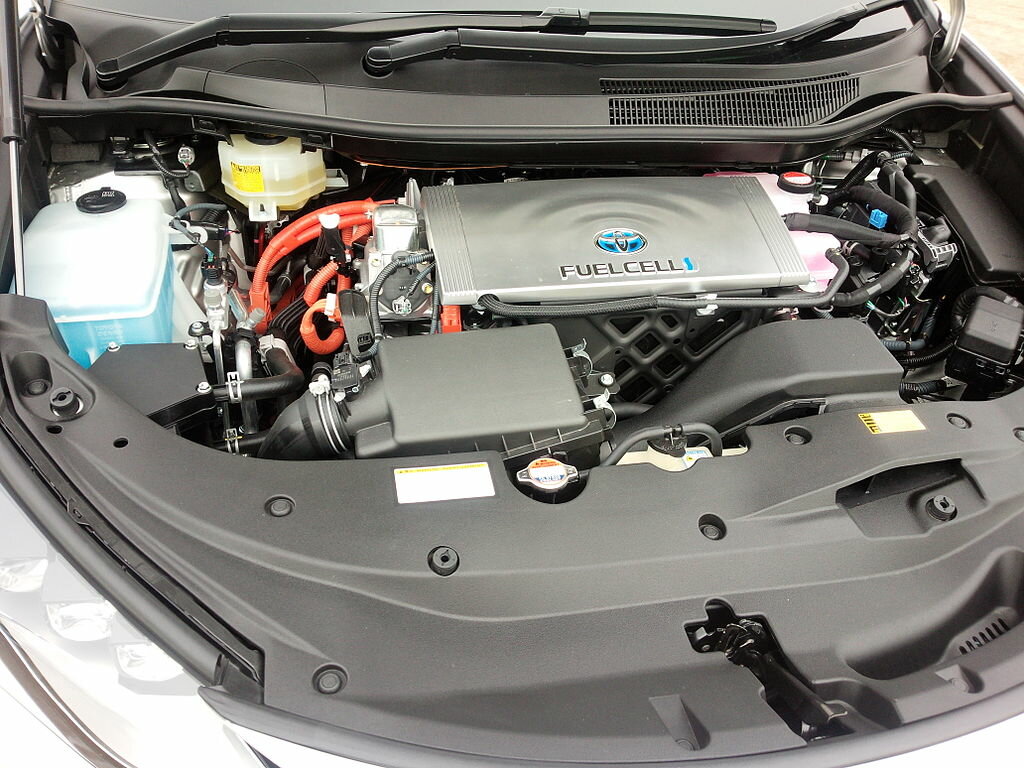Driving the future
The world of transport is changing. Fuel cell cars have overtaken their rivals to become the green transport method of choice for the biggest auto makers. The education system at the moment simply doesn’t reflect where transport is going. Science education in general and renewable energy in particular rarely talk about the electrochemical principles that are fundamental to the transport revolution. Horizon Educational is seeking to redress the balance with a fleet of hydrogen hybrid RC cars and advanced integration technology that provide an in-depth insight into fuel cell technology.
With a driving range of up to 32 MPG Highway and a refueling time of only ten minutes, the big fuel cell players can easily compete with the gas guzzlers. Hyundai market their Tuscon vehicles as the “best of both worlds” – silent and efficient as electric with the power and convenience of gasoline. Toyota focus on fuel cell infrastructure, aiming to support the implementation of 100 refueling stations across California. Honda’s FX Clarity shows that those little features like cruise, control, handling and fast acceleration are now part and parcel of fuel cell transport. Chevrolet’s beast of a fuel cell car, the Equinox, is able to maximize the efficiency of the technology with a 301 horsepower engine and over 63 cubic feet of storage space.
In short, hydrogen cars are no longer the ugly cousins of inconvenient electric vehicles. Now they’re fast, sleek efficient vehicles with all the obvious external advantages of a clean, green technology.
Cars may be the headline-grabber for fuel cells but, in a whole host of power-dependent industries, high-polluting power options are being discarded. For year now, Microsoft, Google, Apple and many more technology giants have been powering datacenters with fuel cell stacks. Fuel cells last longer, are far more efficient and perform with unmatched reliability.
Then there’s telecoms. Connected to the grid, these vital systems are often exposed to power outages, surges and other day-to-day inconveniences. Reliable backup power has therefore becomes essential, especially in nations with less-developed energy infrastructure – the perfect niche for fuel cells. Similarly, cities in naturally more volatile areas of the planet are benefitting from renewable “microgrids”, localized power distributers that call on an array of energy resources to provide more stable power.
The age of the fuel cell is here and it’s quickly transforming the way we think about energy. Yet, despite a renewed focus on STEM, the education system has been slow to respond the realities of cutting-edge science. Horizon Educational’s overriding concern is to bring practical, relatable hardware and content to the science classroom – STEM delivered through the medium of the latest and greatest breakthroughs in alternative energy.
In tandem with the transport revolution, we’ve been hard at work creating RC cars and experiment sets that reflect these amazing advances. Education sets such as the Fuel Cell Car Science Kit reveal the principles that lie behind FC vehicles. H-Racer demonstrate refueling systems, enabling students to create their own hydrogen for the RC car with a standalone refueling station.
To tap into the crucial concept of range-extension we developed the H-Cell 2.0, hydrogen integration technology that can hybridize electrical devices. What makes H-Cell so unique is the purity of the hydrogen that fuels the system – supplied by Horizon’s Hydrostik Pro metal hydride cartridges. As well as appealing to hobbyists interested in hybrid technology, H-Cell powers high school engineering competitions such as 24h de St Jo.
It’s time for the way we teach children and young adults science to match practical, applicable projects in the real world. We believe that Horizon can be an important part of a new, hands-on, STEM-focused approach.

